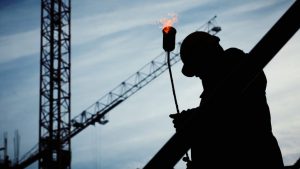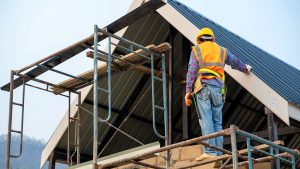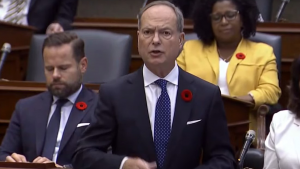As it regularly does at the end of February, Statistics Canada released the results of its latest survey of (a.k.a., the CAPEX survey). After initially planning to increase their total capital expenditures on non-residential tangible capital assets by +4.3% in the 2023 survey, the 2024 survey reported businesses and governments ended up boosting their spending by +8.2%. This upward revision was due in large part to a higher than previously estimated increase (+13.9%) in mining, quarrying, and oil and gas extraction.
The +8.2% figure for Canada as a whole in 2023 will moderate to +4.5% in 2024. In 2024, Capex will accelerate in four of the ten provinces led by Nova Scotia (from +11.9% in 2023 to +15.5% this year), Manitoba (from +5.1% to +8.2%) Ontario (from +8.5% to +9.3%), and Quebec (from 8.4% to +8.8%.) The pace of additional spending will slow in three provinces: Saskatchewan (from +25.9% to +14.4%), Prince Edward Island (from +16.0% to +7.2%), and Newfoundland and Labrador (from +27.0% to +6.5%). And it will decline in three provinces: British Columbia (from +12.9% to -5.3%), New Brunswick (from +1.4% to -1.7%), and Alberta (shrinking further, -1.1% to -0.9%).
Rebound in corporate profits and investor confidence
This year, private sector capital spending is projected to increase by +5.0% following a nominal gain of +4.3% in 2023. It is worth noting that, based on the recently released national accounts, in real terms, business non-residential construction contracted by -0.7 % in 2023 following an increase of +4.0% in 2022.��
Although the increase in 2024 investment intentions is relatively modest, it is consistent with the rebound in third-quarter corporate profits (following three consecutive declines). It also coincides with the improvement in investor confidence reflected by the steady rise in the S&P/TSX Composite Index since October of 2023, as well as with the pick-up in the Bank of Canada’s most recent take on the outlook for investment in machinery and equipment, reported in the .��
Across the country, capital spending on nonresidential construction will exhibit its strongest gains, 2024/2023, in Saskatchewan (+21.1%), Prince Edward Island (+18.9%), Ontario (+8.5%), and Quebec (+8.3%).��
Government initiatives to drive CAPEX
Across industries, by far the largest contributor to the increase in CAPEX in 2024 will be manufacturing. After a gain of +5.4% in 2023, spending on manufacturing projects is projected to jump by +31.0%, accounting for an estimated 56% share of the total increase in capital and repair expenditures nation-wide in 2024.
This increase is underpinned by federal and provincial government-supported programs intended to incentivize clean energy programs. These include seven new renewable diesel facilities related to the federal government’s 2020 Clean Fuel Regulations as well as $27 billion in new investment attracted to Ontario by the provincial government.
In addition, Dow Chemical plans to spend $11 billion to build a net-zero emissions ethylene facility in Alberta.�� Other industries announcing significant increases in capital spending include utilities (+24%), oil and gas extraction (+21%), and federal government public administration (+24.6%).��
Outlook for CAPEX brightens into 2025
From our perspective, the outlook for non-residential capital spending a year further out, in 2025, appears brighter than it is in 2024 for a couple of reasons. First, the steady retreat in headline inflation sets the stage for the Bank of Canada to begin to start easing monetary policy mid-way through the current year.
Second, investor confidence, reflected by the S&P/TSX Composite Index has been trending steadily higher since mid-way through the fourth quarter of 2023.










Recent Comments
comments for this post are closed